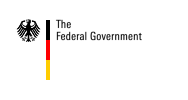Startseite
Press and Information Office of the Federal Government
Successful start of the three-day meeting of G8 Justice and Interior Ministers in Munich
Thu, 24.05.2007
Downloads
At the invitation of Federal Minister of Justice Brigitte Zypries and Federal Minister of the Interior Wolfgang Schäuble the justice and interior ministers of the G8 states and the Vice-President of the EU Commission, Franco Frattini, have been meeting in Munich since Wednesday evening (23 May).
The meeting is attended by the justice and interior ministers from France, Italy, Japan, Canada, Russia, the United Kingdom, the USA and Germany, and the Prosecutors-General from Russia and the United Kingdom. At the outset, the ministers discussed how to combat the sexual abuse of children even more effective than to date. In this regard, the ministers adopted a joint declaration.
"We have already made major progress in the field of legislation", said Federal Minister of Justice Brigitte Zypries. "All G8 states are among the 193 states party to the 1989 UN Convention on the Rights of the Child, which protects children under the age of 18 against sexual abuse and prostitution. 115 states have signed the Optional Protocol to the Convention, committing themselves to make the trafficking in children, the promotion of child prostitution, and the production and dissemination of child pornography a criminal offence. We know from experience that offenders tend to travel to countries with the lowest criminal prosecution pressure", she continued. "For this reason it is essential that we also systematically punish any abuse committed abroad. From the legal point of view this is possible in all G8 states. It is decisive that evidence is secured on the ground as quickly as possible and in a professional manner, to make sure that offenders can be prosecuted in their home countries. For this reason we need to support the countries of destination, for instance by training measures for criminal prosecution organizations or by supporting organizations which protect victims", the Federal Justice Minister continued. Children need to be specifically protected against abuse taking the form of the production and dissemination of child pornography. Electronic media allow the dissemination of child pornography on a large scale in the matter of seconds. "We are agreed that in order to prosecute these offences, which are often committed across national borders, we need a uniform and sufficiently broad definition establishing that a child is any person below age 18, and that we need to include virtual child pornography, and,- last but not least - we need sufficient punitive sanctions", Justice Minister Brigitte Zypries emphasized.
Furthermore the Interpol Secretary-General Ronald Noble, who is attending the meeting as a guest, today provided information about selected Interpol projects and initiatives.
Another focus of today’s sessions is the fight against terrorism, which cannot be tackled by one single country on its own but needs to be addressed by an international alliance.
Apart from the existing mechanisms of information sharing among G8 states and the current G8 projects to protect critical energy infrastructures, the ministers will also discuss the phenomenon of what is known as "homegrown terrorism”. Extending international cooperation to fight the terrorist use of the Internet will be a core issue here.
Federal Minister of the Interior Wolfgang Schäuble emphasized the following:
"The Internet provides terrorists with a tool for communication, dissemination of propaganda and recruitment, but also for preparing and funding their attacks. For this reason we need to attach particular importance to identifying and curbing, where possible, the terrorist use of the Internet. In this context, international cooperation is essential.”
The meeting will continue until Friday; other topics on the agenda include current issues concerning international judicial cooperation and security policy, in particular with regard to the protection of intellectual property rights, the integration of immigrants, managing the migration from developing countries and fighting drug cultivation in Afghanistan.
